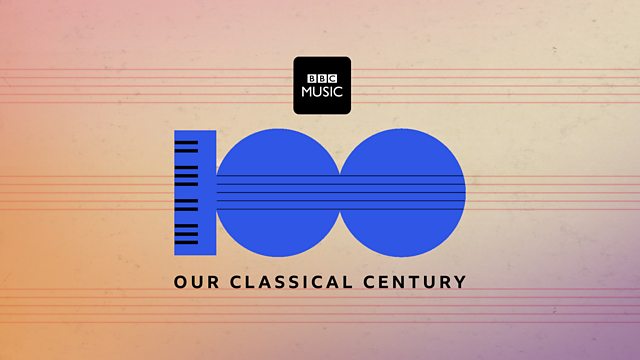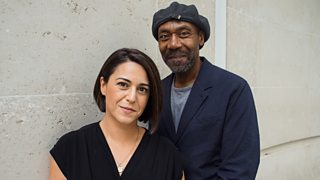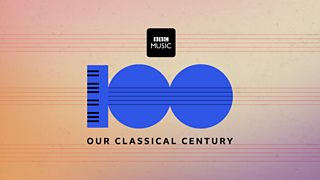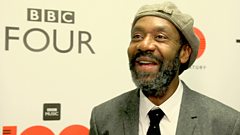
Alberto Ginastera: Estancia
A Proms party piece from the Simón Bolívar Youth Orchestra and Gustavo Dudamel.
"Was this the greatest Prom of all time?" asked the Daily Telegraph. "I’m not sure anything like Gustavo Dudamel and his extraordinary group of young musicians have ever hit The Proms before," said The Guardian. Meanwhile, "Venezuelans invade Albert Hall: Prommers Surrender" was the headline on the Intermezzo website.
They were reporting on the British debut of the Simón Bolívar Youth Orchestra, conducted by 26-year-old Gustavo Dudamel on 19 August 2007. The Proms was part of the tour that saw El Sistema, the Venezuelan music education phenomenon, break through into the popular consciousness in Europe. Both critics and audiences were knocked for six by the combination of the ensemble's extraordinary discipline and the joyful, Latin abandon that the young musicians played with.
In their Prom, an electric performance of Shostakovich’s Tenth Symphony was followed by Leonard Bernstein's Symphonic Dances from West Side Story , gleefully and gloriously reclaiming a Latin American classic from the North American Russian Jew who had written it. "Oh, how Leonard Bernstein would have loved to work with this orchestra," wrote one critic. The emotional temperature built throughout the second half and when the encores came round, it was party time. The orchestra donned jackets of yellow, red and blue - the colours of the Venezuelan flag - and started dancing and twirling and throwing their instruments in the air. The Albert Hall audience didn’t want to let them go.
The Simón Bolívar Youth Orchestra is the senior orchestra of El Sistema and the tip of a huge pyramid of music training for young people in Venezuela. At the time of the orchestra's 2007 Prom, the system was said to be working with 400,000 children across the country. El Sistema had started in 1975 with 11 children rehearsing in an underground car park. Their founder was José Antonio Abreu, an economist and musician who was always careful to point out that "El Sistema" was a system in the sense of a network - a kind of nervous system for music. His system grew, over 40 years, with after-school centres called Nucleos that provided rigorous teaching, daily lessons and strict discipline. Although the young people came from a wide social spectrum, Abreu emphasized that El Sistema was a "social rescue" programme, making the transformative power of musical training available to the poorest and most vulnerable in Venezuelan society.
After the breakthrough concerts in the summer of 2007, people in Europe and the USA were inspired to set up similar music education programmes. Other orchestras from the Sistema stable began touring the world, and Gustavo Dudamel - the most famous product of El Sistema, already Music Director of the Los Angeles Philharmonic – became one of the most famous conductors on the planet.
But there were criticisms too. People questioned whether the social mobility was real, and wondered whether the teaching was unimaginative, mechanical and authoritarian? And - as a stream of young men came out of the orchestras to follow Dudamel onto the conductor’s podium - where were the women? Furthermore, El Sistema was heavily funded by the Venezuelan socialist government under Hugo Chavez, which was mired by accusations of corruption and human rights abuses. When Chavez died in 2013 and was succeeded by Nicolas Maduro, the political situation became much worse. Dudamel, as the most famous face of El Sistema, was criticized for his silence. Finally, in May 2017, after a young violinist from the orchestra was killed in clashes between the military and anti-government demonstrators, Dudamel spoke out.
With the collapse of the Venezuelan economy, things have become difficult for the musicians of El Sistema as they have for everyone in Venezuelan society. Musicians and teachers have emigrated; orchestral tours have been cancelled. It remains to be seen if the transformative power of music can save Venezuela.
This is one of 100 significant musical moments explored by ������̳ Radio 3’s Essential Classics as part of Our Classical Century, a ������̳ season celebrating a momentous 100 years in music from 1918 to 2018. Visit bbc.co.uk/ourclassicalcentury to watch and listen to all programmes in the season.
This is an excerpt from a recording of Danza final (Malambo) by the Simón Bolívar Youth Orchestra Of Venezuela conducted by Gustavo Dudamel.
Duration:
This clip is from
Featured in...
![]()
The music of Our Classical Century—Our Classical Century
100 recordings to celebrate 100 years of exciting, inspirational, rule-busting music.
More clips from Our Classical Century
-
![]()
Step outside your musical tribe
Duration: 02:49



